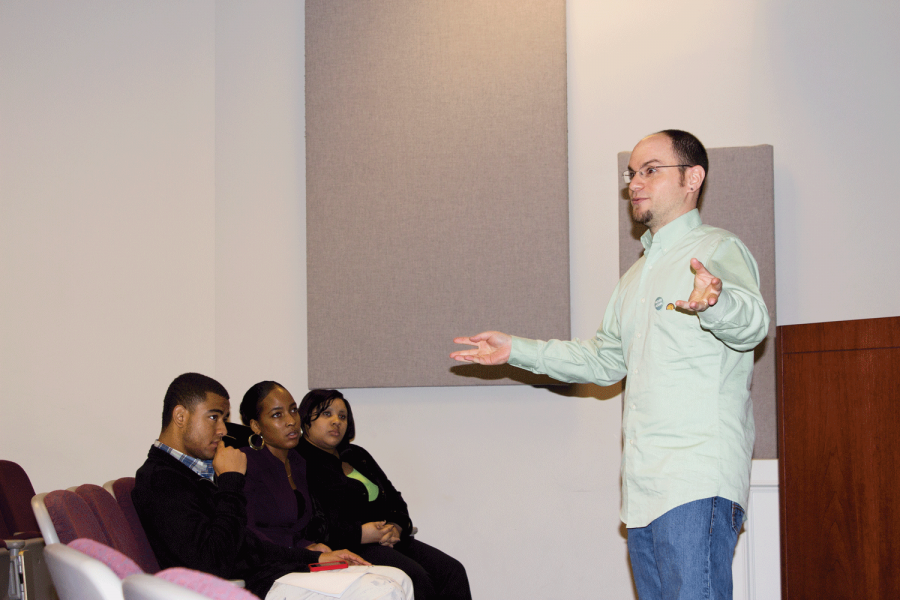During the International Holocaust Remembrance Program on Monday, Jan. 28, the Multicultural Advisory Board focused on giving names and faces to the 12 million that lost their lives in the Holocaust.
According to Daphne Carter-McCants, assistant dean of students, Francis Marion University (FMU) has hosted an annual Holocaust Remembrance Program since 2009.
Carter-McCants explained that it is important for FMU to host programs like the International Holocaust Remembrance Program.
“Programs such as these provide an outlet for experiential learning outside-of-the classroom,” Carter-McCants said. “It also provides an opportunity for students to engage in diversity education.”
Junior psychology major D’Andrea Jones gave an introduction about the program. Next, junior accounting major Sharekka Bridges and freshman political science major Jamal Lightbourne gave a presentation entitled, “Survivors of the Holocaust.” Bridges and Lightbourne gave background information about the Holocaust and informed the audience that out of the 12 million people killed, six million were Jews, and the other six million killed were gypsies, homosexuals, Jehovah Witnesses and the mentally challenged. From 1933 to 1945, there were 20,000 concentration camps built by the Nazis.
Prior to the film, Media Production and Instructional Designer Larry Falck introduced himself as the grandson of a Holocaust survivor. Falck shared that his great grandfather fought in WWI, the only reason his grandfather’s family was able to leave Germany during the Holocaust. Falck’s great grandfather’s service in the first World War and a sponsorship in the United States allowed Falck’s family to leave Europe.
The film “Survivors of the Holocaust,” directed by Steven Spielberg, consisted of actual footage from the war along with interviews of the survivors. The film opened with a survivor giving a vivid account of what Germany was like before the Holocaust. A survivor in the film gave an account of how laws were implemented when he was a child that eventually led to the Holocaust.
The film depicted disturbing images such as burning synagogues, starving, half naked children and dead bodies being piled in mass graves. The survivors gave chilling accounts of their experiences and spoke about the heartache and horror of surviving.
After the film, Falck answered questions from the audience and shared two stories his grandfather had shared with him about surviving the Holocaust.
